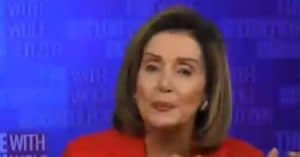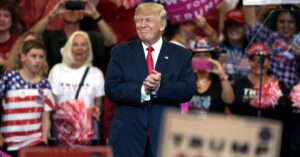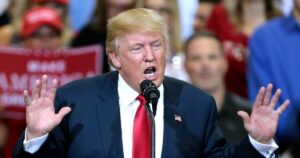Trump Orders Release Of Secret JFK Files
In a move that has sparked both intrigue and skepticism, former President Donald Trump signed an executive order to release the final batch of classified documents related to the 1963 assassination of President John F. Kennedy.
The move led to the unearthing of nearly 2,400 previously inaccessible documents, fulfilling a campaign promise and potentially offering new insights into the Kennedy assassination.
In late January, Trump took decisive action by authorizing the declassification of remaining records concerning the tragic events of November 22, 1963, when President Kennedy was fatally shot by Lee Harvey Oswald in Dallas, Texas. The incident, followed by Oswald's murder two days later, stunned the nation and has since fueled numerous conspiracy theories despite the Warren Commission's conclusion that Oswald acted alone.
Fulfilling A Long-Standing Promise
The recent executive order prompted the FBI to discover around 14,000 pages of new material, contributing to the growing trove of records being examined. While a law previously mandated the release of over 5 million documents by 2017 unless exempted, about 3,600 files still remain undisclosed. Trump's initiative aims to bridge this gap, driven by a belief that maintaining secrecy over these files is not in the public interest.
Details have begun to emerge. For instance, insights into Lee Harvey Oswald's visits to Cuban and Soviet embassies in Mexico City before the assassination offer potential clues that have intrigued historians and the public alike.
Trump, in his own words, expressed a straightforward intention: "All will be revealed." He assured that the release of these documents was not merely an act of transparency but a fulfillment of his commitment to reveal the truth to the American populace.
Potential Impact And Skepticism
The news has attracted mixed reactions. Jefferson Morley, a known historian on the topic, noted, "This is huge. It shows the FBI is taking this seriously." He emphasized the agency's transparency in responding to Trump's directive instead of perpetuating secrecy.
Despite the excitement surrounding the release, some experts remain cautious about the likelihood of uncovering groundbreaking revelations that could rewrite the history of the assassination. Many regard the affair as one wrapped in a blend of confirmed facts and unending speculation.
Adding to the speculation were discussions during Trump's first term, where he was convinced by Mike Pompeo, then CIA director, to withhold certain files, suggesting a possible risk in revealing them prematurely.
Tensions And Internal Controversies
Within Trump's circle, apprehensions about the FBI's intent in how swiftly they act on the order have become apparent. An anonymous aide disparaged the delays as an example of "Total Deep State bulls**t," highlighting suspicious motives lingering within the federal agency.
A Trump insider warned of potential backlash, stating, "When POTUS hears about this stonewalling, he's gonna hit the roof." Such internal friction underscores the complex dynamics at play as the administration navigates historical sensitivities.
On the possibility of circumventing bureaucratic hurdles, a Trump advisor hinted at the sudden appearance of all JFK records online, portraying Trump's determination to "move on and call this a promise kept."
Road Ahead And Historical Uncovers
Under Trump's directive, intelligence officials now have 45 days to outline plans for releasing other key archives. The deadline emphasizes a swift progression towards transparency, albeit within a framework that balances national security concerns.
Adding to the historic discovery, the discussion of Oswald's interactions with Cuban and Soviet representatives in Mexico City adds a layer of intrigue. Speculation abounds regarding any possible affiliations he may have had with these foreign entities, inviting fresh debates among experts.
Overall, this significant development marks a vital chapter in the exploration of a national mystery that has captivated imaginations for over half a century, though the aftermath of this document release remains to be seen.




